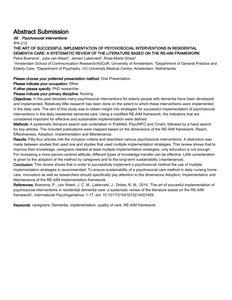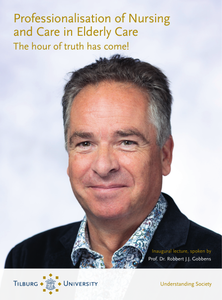Background: Optimizing transitional care by practicing family-centered care might reduce unplanned events for patients who undergo major abdominal cancer surgery. However, it remains unknown whether involving family caregivers in patients’ healthcare also has negative consequences for patient safety. This study assessed the safety of family involvement in patients’ healthcare by examining the cause of unplanned events in patients who participated in a family involvement program (FIP) after major abdominal cancer surgery. Methods: This is a secondary analysis focusing on the intervention group of a prospective cohort study conducted in the Netherlands. Data were collected from April 2019 to May 2022. Participants in the intervention group were patients who engaged in a FIP. Unplanned events were analyzed, and root causes were identified using the medical version of a prevention- and recovery-information system for monitoring and analysis (PRISMA) that analyses unintended events in healthcare. Unplanned events were compared between patients who received care from family caregivers and patients who received professional at-home care after discharge. A Mann-Whitney U test was used to analyze data. Results: Of the 152 FIP participants, 68 experienced an unplanned event and were included. 112 unplanned events occurred with 145 root causes since some unplanned events had several root causes. Most root causes of unplanned events were patient-related factors (n = 109, 75%), such as patient characteristics and disease-related factors. No root causes due to inadequate healthcare from the family caregiver were identified. Unplanned events did not differ statistically (interquartile range 1–2) (p = 0.35) between patients who received care from trained family caregivers and those who received professional at-home care after discharge. Conclusion: Based on the insights from the root-cause analysis in this prospective multicenter study, it appears that unplanned emergency room visits and hospital readmissions are not related to the active involvement of family caregivers in surgical follow-up care. Moreover, surgical follow-up care by trained family caregivers during hospitalization was not associated with increased rates of unplanned adverse events. Hence, the concept of active family involvement by proficiently trained family caregivers in postoperative care appears safe and feasible for patients undergoing major abdominal surgery.
DOCUMENT

This thesis focuses on the effectiveness of a family-centered approach (in Dutch “DMOprotocol”, further referred to as the family-centered approach), designed for monitoring and enhancing children’s social-emotional development in Preventive Child Healthcare (PCH). The effectiveness study took place at a Dutch PCH organization (Icare JGZ). In a quasi-experimental design, regions in which the family-centered approach had already been implemented (northern and southeastern part of Drenthe) were compared to regions in which care-as-usual had been maintained (northern part of Overijssel). The aim was to assess the added value of the family-centered approach from different perspectives. Therefore several research questions were answered in analyses that arereported in different chapters of this thesis.
MULTIFILE

BACKGROUND: Family engagement in care for adult inpatients may improve shared decision making in the hospital and the competence and preparedness of informal caregivers to take over the care at home. An important strategy to involve family members in hospital care processes is to include them in (ward) rounds, also called 'family-centered rounds'(FCRs).OBJECTIVES: Summarize the evidence regarding the added value of FCRs from the perspectives of patients, family, and healthcare professionals.METHODS: A review protocol was registered a priori with PROSPERO (number CRD42022320915). The electronic databases PubMed, CINAHL, and PsycInfo were searched for English-written systematic reviews with a focus on FCRs. The results and methods were presented in line with the PRISMA guidelines, and the methodological quality of the included reviews was assessed using the adapted version of the AMSTAR tool.RESULTS: Of the 207 initial records, four systematic reviews were identified covering a total of 67 single studies, mainly performed in critical and pediatric care. Added values of FCR were described at review level, with references to single studies. All four systematic reviews reported an improvement in satisfaction among patients, family, and healthcare professionals, whereby satisfaction is linked to improved communication and interaction, improved situational understanding, inclusion of family in the decision-making process, and improved relationships within the care situation.CONCLUSION: Although only limited research has been conducted on the value of FCRs in the adult non-critical care setting, and despite the existence of a variety of outcome measures, the results available from the pediatric and acute care setting are positive. The findings of the sole study in an adult non-critical patient population are in line with these results. Further research in adult non-critical care is required to verify its effects in this setting.
DOCUMENT
ObjectiveWe designed a Patient and Family Participation Education Program (PFEP) with the aim of fostering a positive attitude and enhancing the competencies of hospital nurses required for effective patient and family participation in care.MethodsIn a Dutch university hospital, we conducted a before-after study. The PFEP comprising three courses: family conversation, supporting shared decision-making, and health literacy. We assessed nursing attitudes using the FINC-NA questionnaire and competencies with a separate questionnaire before and three months after the program. Changes in attitudes and competencies were analyzed using regression analysis.ResultsTwenty-two nurses participated in the education group, and 58 participated as controls.After three months, the change scores for the education group were statistically significantly higher on the total attitude score (FINC-NA) compared to the control group. Moreover, in six out of twelve competencies, the education group demonstrated significantly higher scores than the control group.ConclusionThe educational program appeared effective in promoting nurses' attitudes and feelings of competencies towards patient and family-centered care.InnovationA blended education program focusing on patient and family has potential value for implementation in hospital care settings, especially for hospitals aiming to cultivate a more patient- and family-centered environment.
DOCUMENT

A case study and method development research of online simulation gaming to enhance youth care knowlegde exchange. Youth care professionals affirm that the application used has enough relevance as an additional tool for knowledge construction about complex cases. They state that the usability of the application is suitable, however some remarks are given to adapt the virtual environment to the special needs of youth care knowledge exchange. The method of online simulation gaming appears to be useful to improve network competences and to explore the hidden professional capacities of the participant as to the construction of situational cognition, discourse participation and the accountability of intervention choices.
DOCUMENT

In the Netherlands, many parents of children with profound intellectual and multiple disabilities care for their children at home. Little is known about how parents and involved healthcare professionals share and align medical care for these children. This study aims to contribute to a better understanding of the dimensions that affect how medical care is shared and how healthcare professionals can align care with family needs. The study design was inspired by grounded theory. We analyzed in-depth interviews with 25 Dutch parents. The analysis identified five dimensions affecting how parents and professionals shared and aligned medical care: fragility, planned care, irregularities, interactions with providers, and parents’ choices. We recognized three distinctive ways these dimensions interplayed, characterizing scenarios of sharing care: dependent care, dialogical care, and autonomous care. The findings illuminated that parental distress decreased when parents could communicate about what they considered important for their child and family and its implications for sharing care. Parents developed their capacity to manage medical care and often evolved in their thinking about the quality of care and life. Sometimes this evolution was due to struggles with the care provided by professionals. Therefore, healthcare professionals may need to broaden the relational work of shared decision-making to include the sharing of medical care. Arrangements need to be continually reassessed as changes in the child’s and family’s situation trigger changes in preferred patterns of sharing care. Commitment to parents’ autonomy implies that healthcare professionals should be attentive to the parents’ emotional and relational needs.
MULTIFILE

Background:Postoperative complications and readmissions to hospital are factors known to negatively influence the short- and long-term quality of life of patients with gastrointestinal cancer. Active family involvement in activities, such as fundamental care activities, has the potential to improve the quality of health care. However, there is a lack of evidence regarding the relationship between active family involvement and outcomes in patients with gastrointestinal cancer after surgery.Objective:This protocol aims to evaluate the effect of a family involvement program (FIP) on unplanned readmissions of adult patients undergoing surgery for malignant gastrointestinal tumors. Furthermore, the study aims to evaluate the effect of the FIP on family caregiver (FC) burden and their well-being and the fidelity of the FIP.Methods:This cohort study will be conducted in 2 academic hospitals in the Netherlands. The FIP will be offered to adult patients and their FCs. Patients are scheduled for oncological gastrointestinal surgery and have an expected hospital stay of at least 5 days after surgery. FCs must be willing to participate in fundamental care activities during hospitalization and after discharge. Consenting patients and their families will choose to either participate in the FIP or be included in the usual care group. According to the power calculation, we will recruit 150 patients and families in the FIP group and 150 in the usual care group. The intervention group will receive the FIP that consists of information, shared goal setting, task-oriented training, participation in fundamental care, presence of FCs during ward rounds, and rooming-in for at least 8 hours a day. Patients in the comparison group will receive usual postoperative care. The primary outcome measure is the number of unplanned readmissions up to 30 days after surgery. Several secondary outcomes will be collected, that is, total number of complications (sensitive to fundamental care activities) at 30 and 90 days after surgery, emergency department visits, intensive care unit admissions up to 30 and 90 days after surgery, hospital length of stay, patients’ quality of life, and the amount of home care needed after discharge. FC outcomes are caregiver burden and well-being up to 90 days after participating in the FIP. To evaluate fidelity, we will check whether the FIP is executed as intended. Univariable regression and multivariable regression analyses will be conducted.Results:The first participant was enrolled in April 2019. The follow-up period of the last participant ended in May 2022. The study was funded by an unrestricted grant of the University hospital in 2018. We aim to publish the results in 2023.Conclusions:This study will provide evidence on outcomes from a FIP and will provide health care professionals practical tools for family involvement in the oncological surgical care setting.
DOCUMENT

Presentatie gegeven over de review in Brussel Objectives: In the past decades many psychosocial interventions for elderly people with dementia have been developed and implemented. Relatively little research has been done on the extent to which these interventions were implemented in the daily care. The aim of this study was to obtain insight into strategies for successful implementation of psychosocial interventions in the daily residential dementia care. Using a modified RE-AIM framework, the indicators that are considered important for effective and sustainable implementation were defined.
MULTIFILE

Inaugural lecture, delivered upon public acceptance of the endowed professorship in Professionalisation of Nursing and Care in Elderly Care by Prof. Dr. Robbert J.J. Gobbens at Tilburg University on 29 September 2023.
DOCUMENT

eHealth education should be integrated into vocational training and continuous professional development programmes. In this opinion article, we aim to support organisers of Continuing Professional Development (CPD) and teachers delivering medical vocational training by providing recommendations for eHealth education. First, we describe what is required to help primary care professionals and trainees learn about eHealth. Second, we elaborate on how eHealth education might be provided
DOCUMENT
